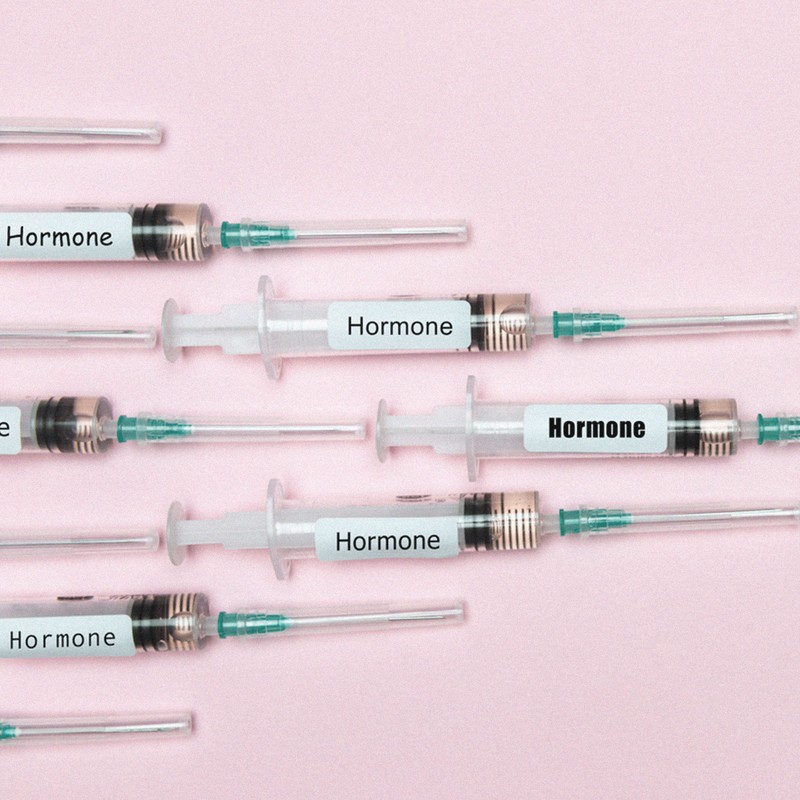Are You Perimenopausal?
It Doesn’t Happen Overnight
Perimenopause isn’t something that just happens. You’ll probably get the occasional day of symptoms before your period, when your hormones are at their lowest, then it could be two or three days a month, and then symptoms may gradually increase from there. As Dr Jennifer Singh, specialist in women’s health at The Marion Gluck Clinic, explains, “Perimenopause is a period of transition before menopause where women experience symptoms due to hormonal fluctuations and imbalance. Women’s hormones are often on a rollercoaster during this time as you may start developing anovulatory cycles – this is when you have a cycle without ovulating. It’s this lack of ovulation that can result in a drop in progesterone levels, which causes a lot of the early symptoms.”
But It Can Happen Earlier Than You Think
“The average age of perimenopausal onset is 45, but many women experience symptoms before,” adds Emma Bardwell, registered nutritionist and women’s health specialist. “The issue is that many women aren’t joining the dots and recognising what’s happening to their bodies. Plus, many GPs haven’t had formal menopause training so they’re not making the diagnosis either. It’s also worth pointing out perimenopause can happen at any age – my youngest client was 14 when her periods stopped. One in 100 women will experience menopause under the age of 40, one in 1,000 under the age of 30, and one in 10,000 under the age of 20.” Emma adds that early menopause often runs in families, too, so it’s worth talking to the women in your family about their experience.
Every Woman Is Different
“Talking about perimenopause symptoms can feel gloomy and overwhelming, but it’s also important to know that 25% of women don’t have any symptoms that impact their wellbeing at all,” Emma stresses. “And for those that do experience symptoms, there are lots of avenues to exlore when it comes to treatment these days,” she says.
Hormone Tests May Not Be Worth It
The British Menopause Society says there’s no need to get your hormones tested if you’re over 45, explains Emma. “It’s a clinical diagnosis, so your GP will go by your symptoms. If you’re 40-45, hormones may be tested but this isn’t very useful as hormones fluctuate wildly at this stage in life. The one-time hormone tests may be useful is if you’re experiencing premature ovarian insufficiency (POI), which occurs in women under the age of 40. Your GP will look for high levels of FSH (follicle stimulating hormone), which can be indicative that hormone levels are low.”


The Symptoms To Look Out For…
As Emma tells us, “There are over 34 official symptoms of perimenopause, but there’s probably double that in reality. Everyone tends to know what I call the ‘poster symptoms’, such as hot flushes and mood swings, but others, especially psychological symptoms, are discussed far less.”
Changes To Your Cycle
The earliest sign that a woman is perimenopausal is changes to her periods. “Before perimenopause, your oestrogen and progesterone levels rise and fall in a consistent pattern during your menstrual cycle,” says Jennifer. “In perimenopause, hormone changes become erratic, which can result in unpredictable bleeding patterns.” It can make once-regular periods suddenly irregular, and once-light periods heavy, and vice versa. “A worsening in PMS symptoms is also common,” she adds.
Irritability & Low Moods
Several large studies have shown an increased risk of developing depression during perimenopause. “Psychological symptoms can be the most debilitating and make you feel like you’re losing the plot,” says Emma. “Typically, they include loss of confidence, low self-esteem, memory lapses, poor concentration, anxiety, panic attacks, insomnia, irritability, heart palpitations and a loss of joy – many women say they simply don’t feel like themselves anymore.”
Feeling Stressed
“A woman’s ability to manage stress is often blunted during perimenopause,” says Emma. “The HPA axis is the communication between the brain and adrenal glands, and to some degree is improved by progesterone. So, when progesterone levels dip, our ability to cope with stress is reduced. This is further impacted by the fact that perimenopause occurs at a time when a woman is likely juggling many balls – career, family, elderly parents, relationships. Trying to regulate the stress response is easier said than done but it’s worth persisting.”
Bloating & Constipation
Oestrogen may be something we associate with reproductive health, but it also plays a role in the digestive system. As Emma explains, it aids peristalsis, i.e. the movement of food through the digestive system. “If you are low in oestrogen, this can affect gut health and means digestion becomes sluggish. Focus on getting around 30g of fibre per day through plant sources, as well as one or two portions of fermented foods a day, chew well and avoid sitting in high-waisted jeans or tight leggings for long periods of time.”
Dry Skin
One of oestrogen’s roles in the body is to hydrate and build collagen, so when levels plummet, side effects arise. “You may notice your skin is less plump, wrinkles are starting to show, and your hair might become coarse,” says Emma. “This also extends to other areas of the body – your eyes, mouth and vagina become drier and less lubricated. We have oestrogen receptors all over the body – from our hair follicles to ankle joints, which means you can potentially feel the effects of low hormones in every part of your body.”
Itchy Skin
Cells all over our bodies are teeming with oestrogen receptors, so when oestrogen levels start to fall, it can throw up all manner of changes, one of them being itchy, painful skin. Some women can even suffer from a condition called formication, which is the sensation of insects crawling on your skin. “Some women also find they get itchy skin and eyes and are more sensitive to allergens – this is down to histamine intolerance, which can flare up at this time,” Emma adds. “Common culprits include wine, fermented foods like kefir, spinach, aged cheese, tomatoes, vinegar and avocadoes, and it can help to keep a food diary to see what triggers symptoms. Histamine intolerance is a complex condition that requires a short-term, potentially rather restrictive diet, so consider talking to a nutritionist who specialises in the condition.”
Dizziness & Migraines
“Migraines, dizziness and vertigo are also common symptoms during perimenopause,” Emma adds. Again, this is down to hormones – it’s believed a drop in oestrogen levels can trigger vertigo and dizziness."
What You Can Do To Ease Symptoms…
Move Daily
“Exercise is an excellent tool to include in your perimenopausal toolkit. Don’t worry too much about what kind – just make sure you’re moving your body daily. Regular movement helps alleviate stiffness, fatigue, brain fog, stress, poor sleep and irritability. Research suggests just 15 minutes of physical activity per day can add three years to your lifespan. And while all exercise is great, women should aim to include at least two sessions of resistance training into their week. Building muscle is important to help maintain bone density and manage insulin levels.” – Emma
Think About Self-Care
“Perimenopause is a way of your body signalling the need for change and self-care, so don’t discount the importance of looking after yourself. Prioritise sleep, make time for mindfulness and make sure you aren’t spreading yourself too thin. Meditation, yoga, walks in nature, deep breathing, talking therapy, and cold-water swimming can all help manage stress levels.” – Emma
Keep Blood Sugar Balanced
“When blood sugar peaks and troughs it can worsen feelings of anxiety, fatigue and irritability. The simplest way to do this is to ensure you’re eating a decent palm-sized portion of protein alongside healthy fats and fibre at each meal. Insulin resistance can become problematic during perimenopause so steer away from the more highly refined carbs and opt instead for complex carbs that release energy slowly – think brown rice, beans, vegetables, berries and lentils.” – Emma
Eat More Tofu
“Eating foods rich in phyto-oestrogens – i.e. plant-based forms of oestrogen that are structurally similar to oestrogen hormones produced by the body – can help. Examples include tofu and other soya-based products, ground flaxseeds, chickpeas and legumes. They’ll never take the place of HRT but some studies have shown they may help with hot flushes.” – Emma
Load Up On Healthy Fats
“Olive oil, avocado, nuts, seeds and oily fish help increase levels of healthy cholesterol in the body, which is important for hormone production. If you are experiencing symptoms of any nature, try to eat a clean, wholefood diet that features plenty of fibre (particularly from dark leafy vegetables) and healthy fats. On the other hand, dairy, red meat, caffeine and alcohol can all contribute to oestrogen accumulation, which causes hormonal imbalance.”
Consider HRT As An Option
HRT has had a bad rap in recent years, but it could be a veritable solution to easing symptoms, Jennifer says. “If you’re still ovulating, hormones may not be necessary and changes to nutrition and lifestyle habits may help alone. If these measures don’t help, then hormone replacement can be considered. If ovulation is no longer regular, then often the problem lies with the body’s inability to produce enough progesterone to balance out the effects of oestrogen. Your GP can prescribe standard HRT although this doesn’t always suit everyone. At the Marion Gluck Clinic, we provide bespoke hormone replacement as a cream, lozenge or capsule.”
Consider CBT
“CBT can be hugely helpful during perimenopause. It’s the first line of therapy for insomnia, but also very beneficial for women who suffer with hot flushes in particular. Acupuncture is also something that can help, so don’t discount alternative treatment.” – Emma
If You’re Not There Yet, Be Prepared
“In an ideal world, women would pre-empt perimenopause and make sure they’re well-prepped in advance, rather than taking a ‘wait and see’ approach. The more knowledge you have, the better. Get your blood pressure and cholesterol checked; find out your levels of stored iron (ferritin), B12, folate and vitamin D levels; and check your thyroid. Having these functioning optimally will stand you in good stead and, interestingly, having a low thyroid or sub-optimal iron levels can actually mimic perimenopause symptoms, so it’s wise to make sure they’re robust.” – Emma
To book an appointment with Emma Bardwell (prices start from £250 for a Midlife MOT Package), visit EmmaBardwell.com. Her book, The Perimenopause Solution, is also available now. The Marion Gluck Clinic is the UK’s leading medical clinic that pioneered the use of bioidentical hormones to treat menopause, perimenopause and other hormone related issues. For more information, visit MarionGluckClinic.com.
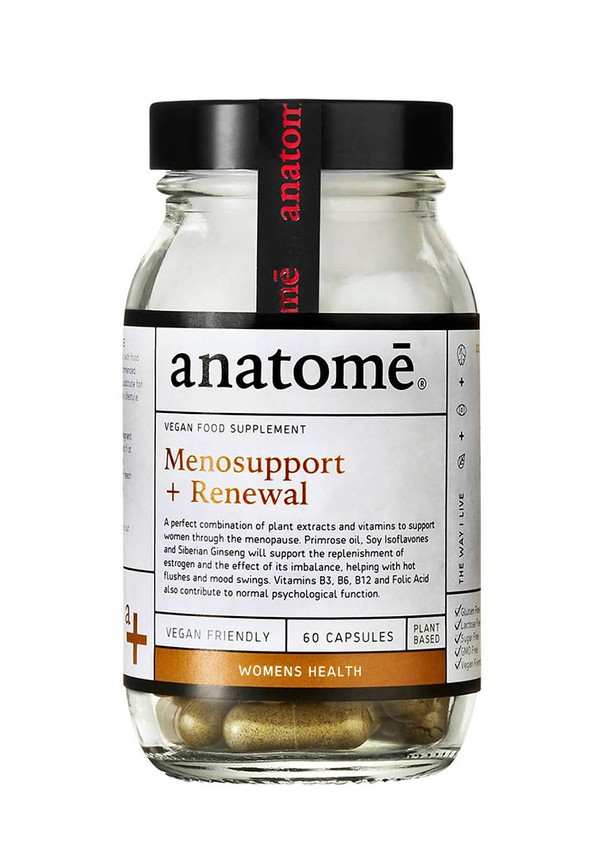
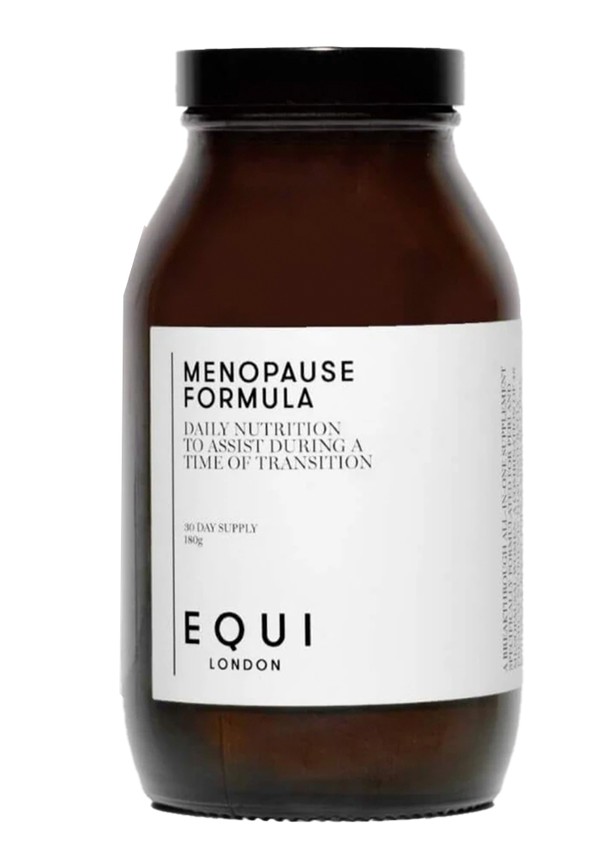
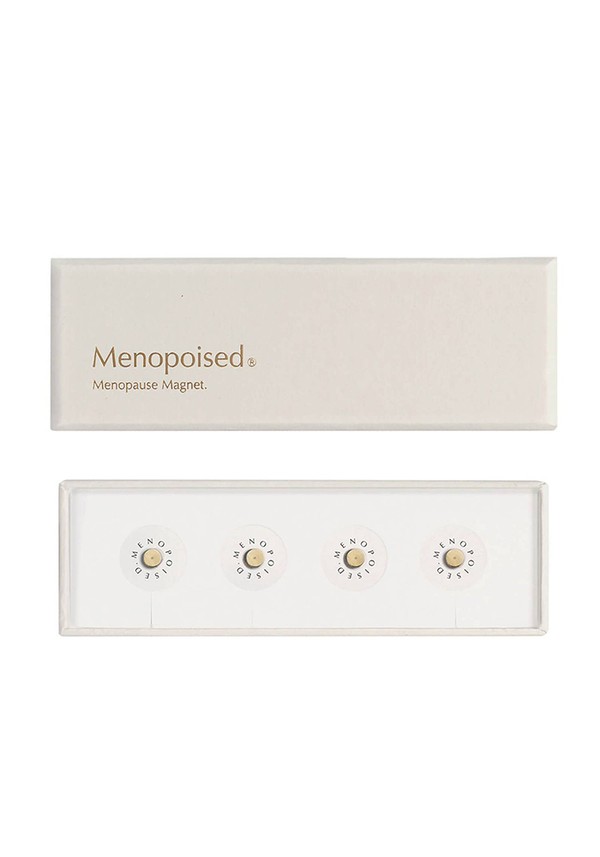
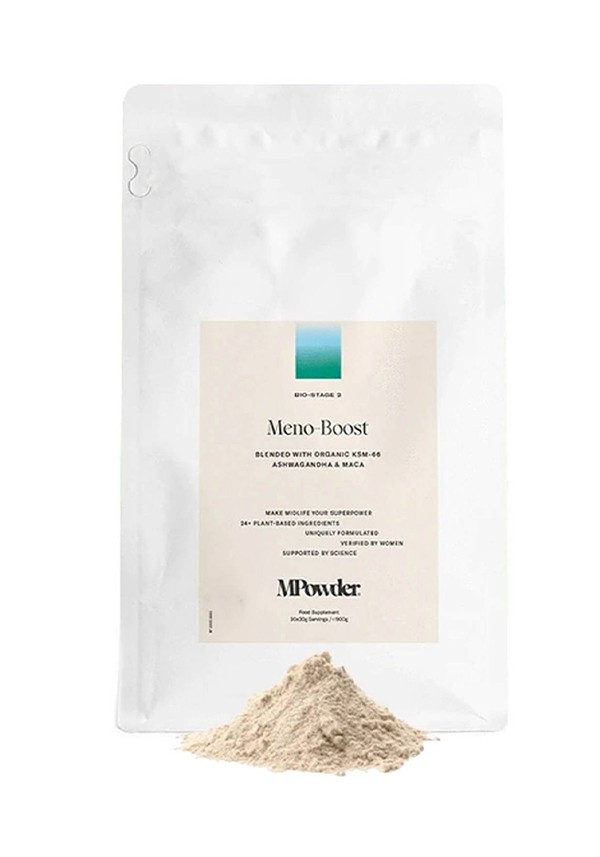
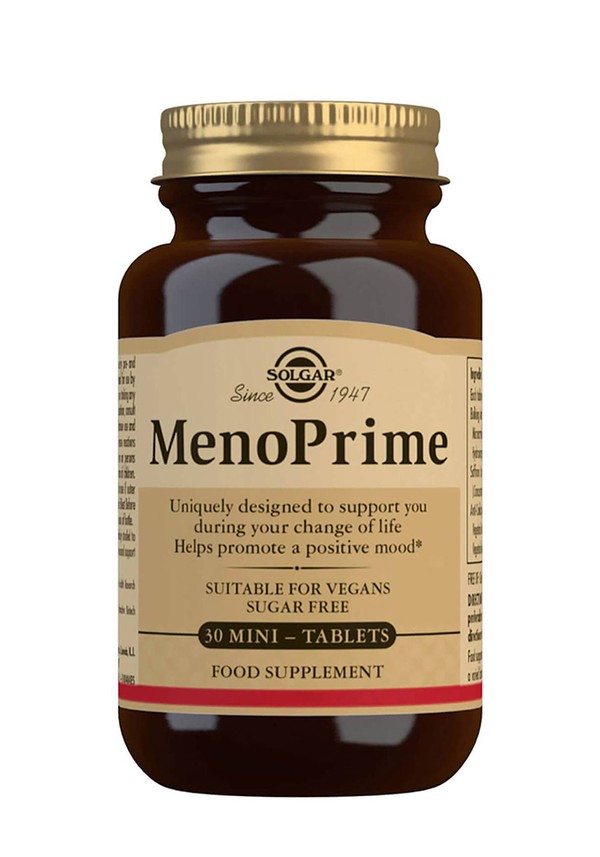
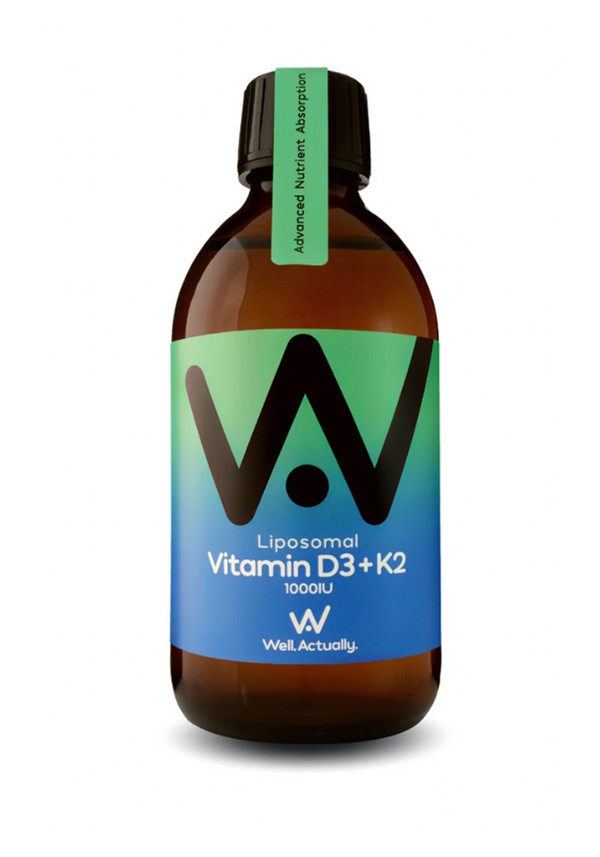
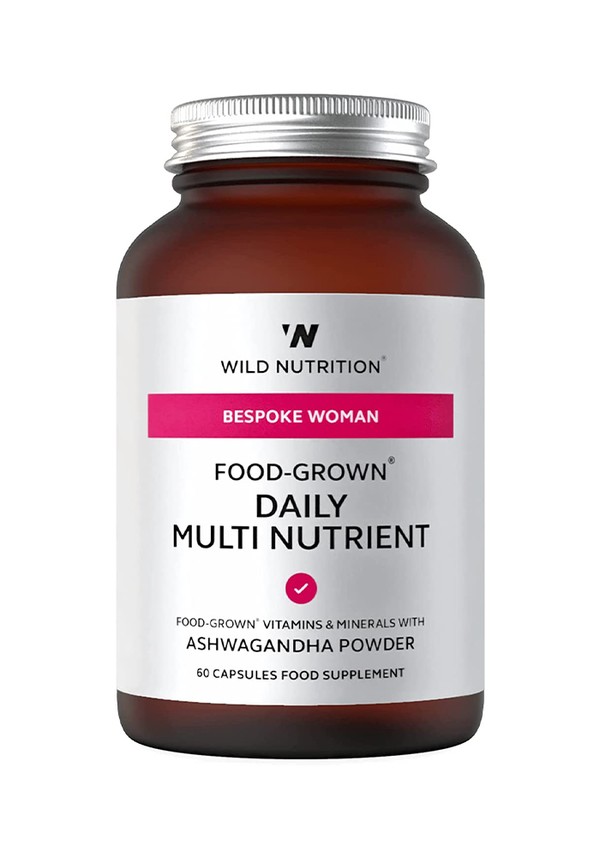
DISCLAIMER: Features published by SheerLuxe are not intended to treat, diagnose, cure or prevent any disease. Always seek the advice of your GP or another qualified healthcare provider for any questions you have regarding a medical condition, and before undertaking any diet, exercise or other health-related programme.
DISCLAIMER: We endeavour to always credit the correct original source of every image we use. If you think a credit may be incorrect, please contact us at info@sheerluxe.com.
